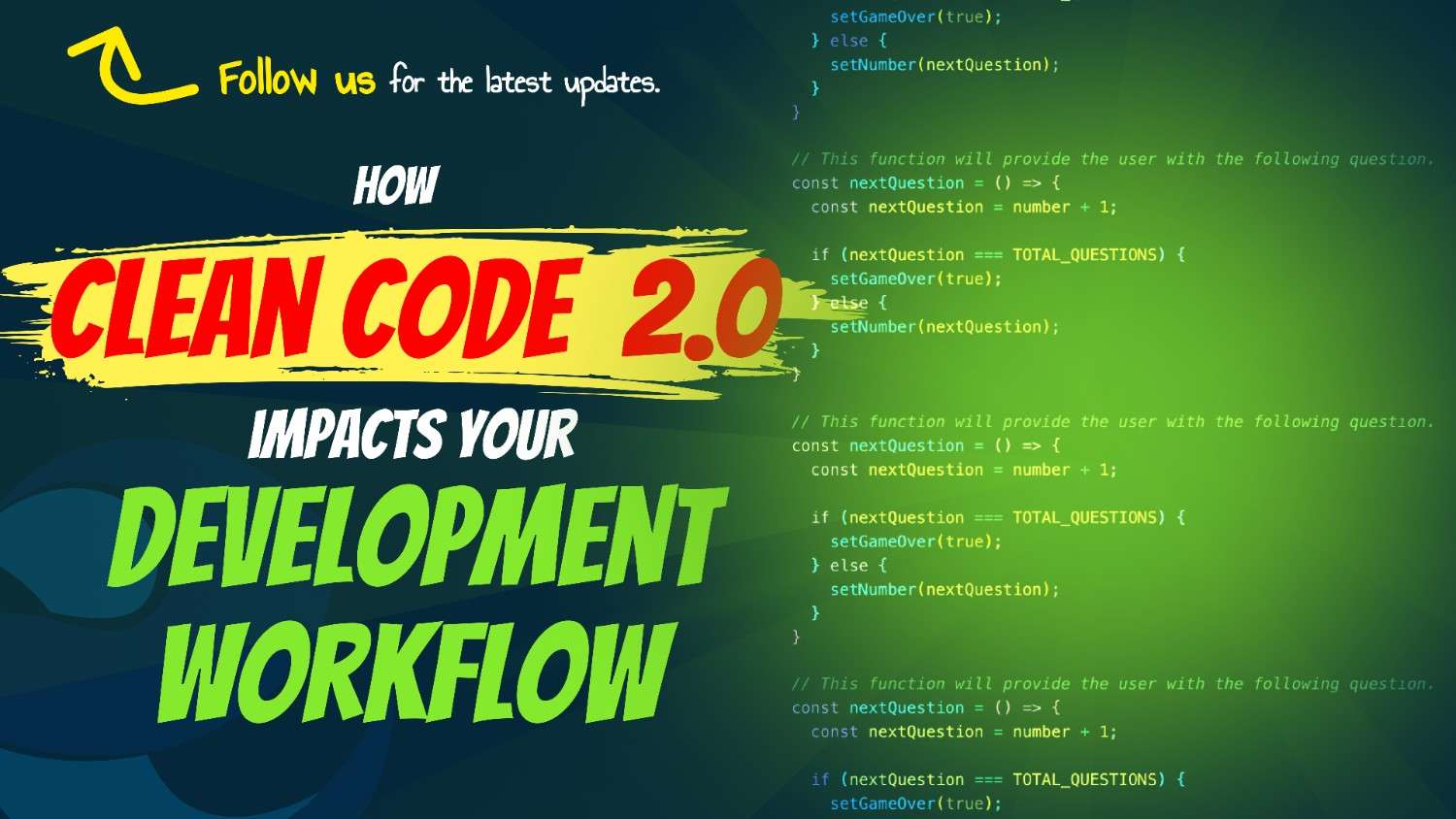How Clean Code Impacts Your Development Workflow?
In the world of software development, Clean code is more than just a best practice; it is the cornerstone of efficient and sustainable software development. It ensures that your code is easy to read, understand, and modify, which significantly reduces complexity and promotes clarity.
Clean code is characterized by its simplicity and readability, which means that anyone who reads it can quickly grasp its purpose and logic. By adhering to clean coding principles, you simplify every stage of the development process, from initial design and implementation to testing, debugging, and maintenance. Clean code facilitates collaboration among team members, as it is easier for others to comprehend and work with well-structured code. This leads to fewer errors and bugs, as the code’s intent is clear and straightforward. Moreover, clean code enhances the scalability and adaptability of your software, making it easier to introduce new features or make changes without causing disruptions. In essence, clean code is not just about writing code that works; it’s about writing code that works well, is maintainable, and can stand the test of time, ultimately contributing to the overall quality and longevity of your software projects.
Let’s explore how clean code impacts your development process and why it should be a priority for every developer.
- Enhanced Readability : Clean code is written with clarity and simplicity in mind. When code is easy to read, developers spend less time deciphering what it does and more time focusing on solving problems
i) Readable naming conventions allow new team members to quickly understand the codebase.
ii) Clear separation of concerns and modular functions make it easier to trace functionality.
This clarity reduces onboarding time and eliminates confusion, fostering better collaboration among developers.
- Improved Maintainability : In any development lifecycle, maintaining code is often more time-consuming than writing it. Clean code ensures that maintenance is straightforward:
i) Consistency in style and structure reduces friction when updating or debugging code.
ii) Bugs are easier to identify because logical flow and dependencies are clearly laid out.
With maintainable code, even minor updates don’t feel like navigating a labyrinth.
- Faster Debugging and Testing : Bugs are inevitable, but clean code minimizes the chaos of debugging. Well-structured, self-explanatory code:
i) Makes it easier to isolate issues without unintended side effects.
ii) Pairs well with unit tests, as modular and single-responsibility functions are inherently easier to test.
By adhering to clean code principles, you can reduce the time spent hunting for bugs and increase confidence in your fixes.
- Encourages Collaboration and Team Growth : Development is rarely a solo activity. Clean code fosters a collaborative environment:
i)Team members can seamlessly review, understand, and contribute to the codebase.
ii) Junior developers learn good practices and coding standards by observing a clean and well-structured codebase.
This shared understanding of clean coding principles creates a strong foundation for team synergy and innovation.
- Reduces Technical Debt : Technical debt accumulates when code is written hastily or without consideration for the future. Clean code mitigates this risk by:
i) Promoting refactoring during development rather than postponing it.
ii) Ensuring that codebases evolve gracefully over time.
By avoiding shortcuts and adhering to clean practices, you save significant time and costs in the long run.
- Streamlines Code Reviews : Code reviews are a vital part of the workflow, and clean code makes this process smoother:
i) Reviewers focus on logic and functionality instead of pointing out stylistic or structural issues.
ii) Cleaner pull requests lead to faster approvals and deployments.
This ensures continuous integration and delivery without unnecessary bottlenecks.
How to Write Clean Code :
1. Write meaningful variable and function names that reflect their purpose.
2. Limit function size and adhere to the single responsibility principle.
3. Comment only when necessary, letting the code speak for itself.
4. Refactor regularly, ensuring code quality improves over time.
5. Avoid magic numbers and hardcoding, instead use constants and configuration files.
Clean code isn’t just about aesthetics; it’s a cornerstone of efficient, scalable, and enjoyable software development. By investing in writing clean code, you simplify your workflow, foster better collaboration, and future-proof your codebase. Whether you’re working solo or in a team, clean code transforms development from a tedious chore into a rewarding craft.
Start small—implement clean coding principles in your next project, and watch your development workflow improve exponentially.
#CleanCode #SoftwareDevelopment #CodingBestPractices #CodeReadability #CodeMaintainability #CodingStandards #TechDebt #CodeQuality #DevOps #SoftwareEngineering #CodingTips #CodeReview #CodingCommunity #DeveloperLife #CodingSkills

